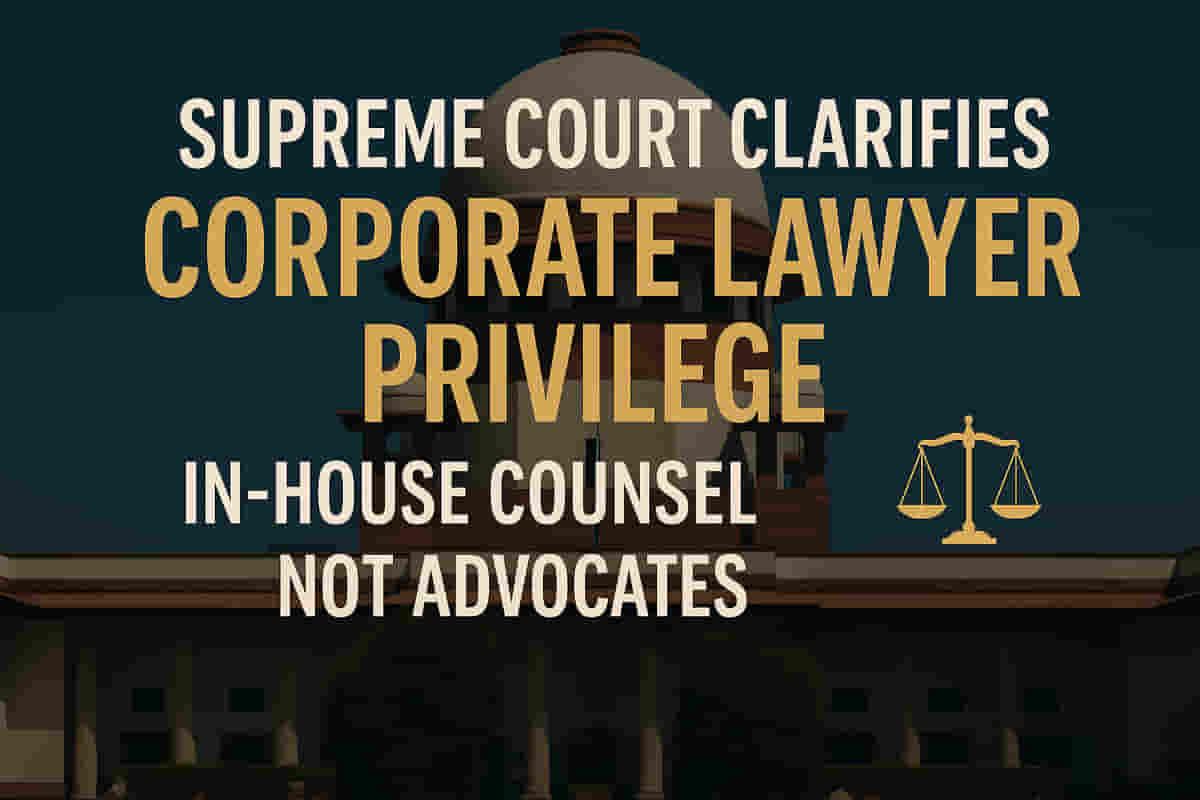Supreme Court Rules In-House Corporate Lawyers Not Advocates, Denies Attorney-Client Privilege Under Section 132
Law/Court
|
31st October 2025, 1:08 PM

▶
Short Description :
Detailed Coverage :
The Supreme Court of India, in a significant ruling, has clarified that in-house counsel employed by corporations do not fall under the definition of "advocates" for the purpose of attorney-client privilege. This means they cannot claim the statutory protection available under Section 132 of the Bharatiya Sakshya Adhiniyam (BSA). The Bench, led by the Chief Justice of India, emphasized that this privilege is reserved for advocates practicing law independently, not for lawyers who are full-time salaried employees of companies.
The Court reasoned that independence is fundamental to the legal profession. In-house counsel, being integrated into a company's management and influenced by its commercial interests, lack this crucial independence. While they advise employers on legal matters, their primary obligation is to protect the employer's interests. The Court also referenced the Bar Council of India Rules, which prevent full-time salaried employees from practicing as advocates.
However, the ruling does not leave these legal advisors without any protection. The Court clarified that in-house counsel can still seek limited confidentiality under Section 134 of the BSA. This section generally prevents compelling disclosure of confidential communications with a legal advisor but does not grant the broader professional privilege associated with advocates.
Impact: This judgment will significantly affect how corporations handle sensitive information during investigations. Companies may need to re-evaluate their internal legal processes and document handling. It could lead to increased scrutiny of communications involving in-house counsel, potentially impacting corporate governance and compliance strategies. The ruling reinforces the distinction between independent legal practice and in-house advisory roles, impacting the expectations and legal standing of corporate legal departments. Rating: 8/10.
Definitions: In-house Counsel: Lawyers employed directly by a company or organization to provide legal advice and services to that organization. Advocate: A lawyer who pleads cases in court or provides legal counsel, generally understood as practicing law independently. Attorney-Client Privilege: A legal rule that protects communications between a client and their attorney from disclosure, ensuring confidentiality. Bharatiya Sakshya Adhiniyam (BSA): The Indian Evidence Act, recently renamed and revised, which governs the admissibility of evidence in court proceedings. Suo Motu: A Latin term meaning "on its own motion." It refers to a court taking action or initiating proceedings without a formal request from the parties involved. Bar Council of India Rules: Regulations set by the Bar Council of India that govern the conduct and practice of lawyers in India. Confidentiality: The state of keeping or being kept secret or private.